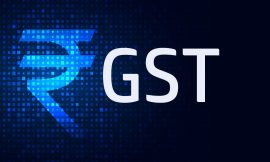The GST Amnesty Scheme 2024, unveiled in the Union Budget, offers a valuable opportunity for GST-registered taxpayers facing pending interest or penalties. Designed to promote compliance, this scheme allows taxpayers to obtain a waiver of interest and penalties related to outstanding tax demands under Section 73 of the CGST Act. Here, we explore the essential aspects of the scheme, its eligibility criteria, application process, and the guidelines recently released by the Ministry of Finance.
Applicability and Coverage of the Scheme
Effective from November 1, 2024, the GST Amnesty Scheme 2024 targets the tax periods from July 1, 2017, to March 31, 2020. The scheme is particularly aimed at cases where interest or penalties have been raised under Section 73 of the CGST Act. It allows a conditional waiver on these penalties and interest, provided that the tax principal is settled fully by the deadline of March 31, 2025. This initiative aims to relieve taxpayers from substantial financial burdens and to simplify compliance for the specified tax periods.
Introduction of Section 128A and Rule 164
The scheme is built on two key additions to the CGST Act: Section 128A and Rule 164. Section 128A introduces provisions allowing waivers on interest and penalties, conditional upon full tax payment. Rule 164 outlines the procedures and requirements necessary to obtain these waivers, providing a structured approach for eligible taxpayers to close pending cases efficiently. Together, these additions create a well-defined framework, ensuring both clarity and consistency for applicants.
Deadlines and Conditions for Waiver Eligibility
To benefit from the scheme, taxpayers must meet specific deadlines and conditions. Full payment of outstanding tax must be completed by March 31, 2025, while the formal waiver application must be submitted by June 30, 2025. Importantly, the scheme does not waive any portion of the tax itself; only the interest and penalties can be conditionally waived. Additionally, there will be no refunds for previously paid interest or penalties, which emphasizes the scheme’s focus on prospective compliance.
Eligibility Restrictions and Separate Applications
The scheme includes eligibility restrictions that taxpayers should review carefully. Applications for waivers are not permitted if an appeal or writ petition is pending for the related case. Furthermore, cases involving erroneous refunds or compliance issues under Section 16(4) on input tax credits are excluded from the waiver’s benefits. Taxpayers must also submit separate applications for each notice, statement, or order for which they seek waiver, ensuring precise compliance with the scheme’s procedural rules.
Process and Application Forms
The application process is streamlined through the use of designated forms and payment modes, aimed at reducing administrative burdens for taxpayers. Depending on the stage of the case, taxpayers must submit their applications via Forms GST SPL-01 or GST SPL-02. Additionally, payments related to the amnesty applications are to be completed through specific modes, including DRC-03 or ELR. These standardized forms and payment methods are designed to enhance the ease of applying for the amnesty scheme and improve tracking for tax authorities.
Key Notifications and Implementation Guidance
To ensure clarity and proper implementation, the Ministry of Finance issued Notification Nos. 20/2024 and 21/2024, along with Circular No. 238/32/2024-GST. These documents provide critical guidelines on the scheme’s application procedures, payment methods, and limitations. Taxpayers seeking to benefit from the amnesty should consult these documents for detailed instructions and procedural specifics before proceeding with their applications.
GSTN Advisory on Tax Payment Under the Scheme
On November 12, 2024, the Goods and Services Tax Network (GSTN) released an advisory detailing the process for paying tax demands under the GST Amnesty Scheme. This advisory offers practical insights and clarifies essential steps for taxpayers, further facilitating smooth and error-free submissions. By following this advisory, taxpayers can avoid potential delays and ensure their applications are processed effectively.
Considerations for Appeals, ITC Use, and Case Closure
Additional guidelines in the scheme apply to cases where appeals, adjustments, or Input Tax Credit (ITC) may be involved. For instance, taxpayers with pending appeals may need to withdraw their appeals to take advantage of the scheme’s benefits, allowing for case closure without additional complications. In certain cases, specific uses of ITC may be permissible, aligning with the scheme’s structured conditions for waivers.
Conclusion
The GST Amnesty Scheme 2024 offers a pragmatic route for taxpayers to resolve outstanding liabilities by addressing interest and penalties, fostering compliance, and reducing financial stress for eligible taxpayers. With the newly introduced Section 128A, Rule 164, and the guidance issued through notifications and advisories, taxpayers can navigate this opportunity effectively. Eligible taxpayers should consider consulting Notification Nos. 20/2024 and 21/2024, along with Circular No. 238/32/2024-GST, to fully understand and maximize the scheme’s benefits
FAQs
- What is the GST Amnesty Scheme 2024, and who is eligible?
The GST Amnesty Scheme 2024 offers a conditional waiver on interest and penalties related to tax demands raised under Section 73 of the CGST Act. It applies to GST-registered taxpayers with outstanding interest and penalties for tax periods between July 1, 2017, and March 31, 2020. Full tax payment by March 31, 2025, and a waiver application submission by June 30, 2025, are required to qualify. - What tax periods are covered by the GST Amnesty Scheme 2024?
The scheme covers tax periods from July 1, 2017, to March 31, 2020, focusing on waivers of interest and penalties for tax demands raised under Section 73 of the CGST Act. Taxpayers who meet the scheme’s conditions can benefit from these waivers. - What conditions must be met to apply for a waiver of interest and penalties?
To apply, taxpayers must ensure that all outstanding tax dues are paid by March 31, 2025, and submit the waiver application by June 30, 2025. Separate applications are needed for each tax notice, statement, or order, and pending appeals or issues with Section 16(4) compliance may disqualify applicants. - Which forms are required for the waiver application under this scheme?
Taxpayers must use Forms GST SPL-01 or GST SPL-02 depending on their case status. Payments associated with the amnesty scheme must be made via DRC-03 or ELR, as specified in the scheme’s guidelines.
Are there any refunds for interest or penalties already paid?
No, the scheme does not provide refunds for interest or penalties that have already been paid. The waiver only applies to unpaid interest and penalties for the specified tax periods, with no impact on previously cleared amounts.





